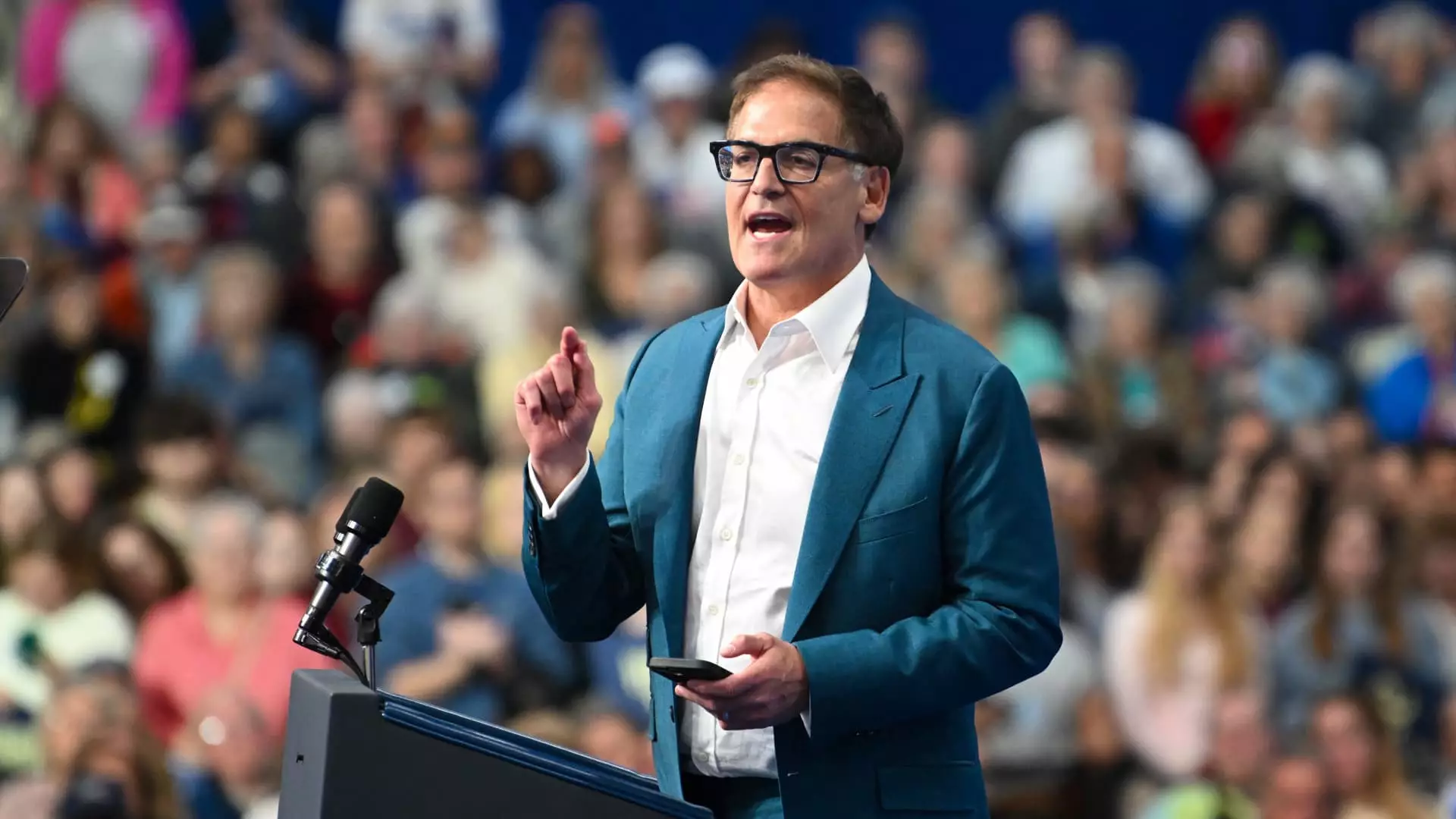In a recent interview on ABC, billionaire investor Mark Cuban made it clear he is not seeking a political position within the government, despite his active involvement in campaigning for Vice President Kamala Harris. His unequivocal statement against serving in a cabinet role underscores a long-standing aversion to traditional political paths. As Cuban articulated, “I have no interest in being a politician of any type,” emphasizing his preference for the disruptive nature of entrepreneurship over the constraints of political office.
Cuban has gained prominence in political discussions primarily through his support for Harris, especially as the race against former President Donald Trump heats up. His earlier comments hinted at possible political ambitions, including suggesting his name for the role of Securities and Exchange Commission (SEC) Chair, indicating a deeper involvement in policy dialogue. This juxtaposition raises questions about the clarity of Cuban’s political intentions; does he desire influence without the trappings of office?
Transition from Business to Politics
Cuban’s historical role as an entrepreneur has shaped his identity as an audacious disruptor, leading innovations in business while also inflating his public persona. His forays into political commentary seem to reflect a desire to influence without stepping into the bureaucratic world of governing. Despite his engagement in Harris’s campaign, where he shares his stance on various policy matters—including corporate regulation—Cuban maintains that these are reflections of his business insights rather than aspirations for an official role.
In previous statements, especially those made last September, Cuban did express candid support for Harris’ campaign and discussed the need for changes within the SEC, a sector with which he’s had many direct confrontations. His critical stance on Gary Gensler’s leadership indicates a willingness to offer critiques and recommendations while stopping short of accepting a role himself. The contradiction between Cuban’s public criticism and his assertion of not running for a political position illustrates the complexities of his motivations.
Influence Through Advocacy, Not Office
Cuban’s approach appears to leverage his celebrity and business acumen to affect change from the outside rather than within the confines of an official position. His suggestion regarding the firing of Federal Trade Commission Chair Lina Khan displays his advocacy for a more aggressive consumer-focused approach, demonstrating how he intends to wield influence without direct political engagement. For Cuban, the effectiveness in political discourse may arise from his uniqueness as an outsider who trades the conventional drudgery of politics for the rhythm of entrepreneurship.
The diverging paths of traditional politicians and trailblazers like Cuban highlight a significant shift in how influence is wielded in contemporary politics. With his commitment to positive disruption and innovation, Cuban embodies a new archetype of political engagement. By publicly aligning with Harris yet refusing an official role, he reinforces the notion that one can be a powerful advocate for change while remaining true to one’s values—an approach that many see as necessary in today’s complex political landscape.

Leave a Reply